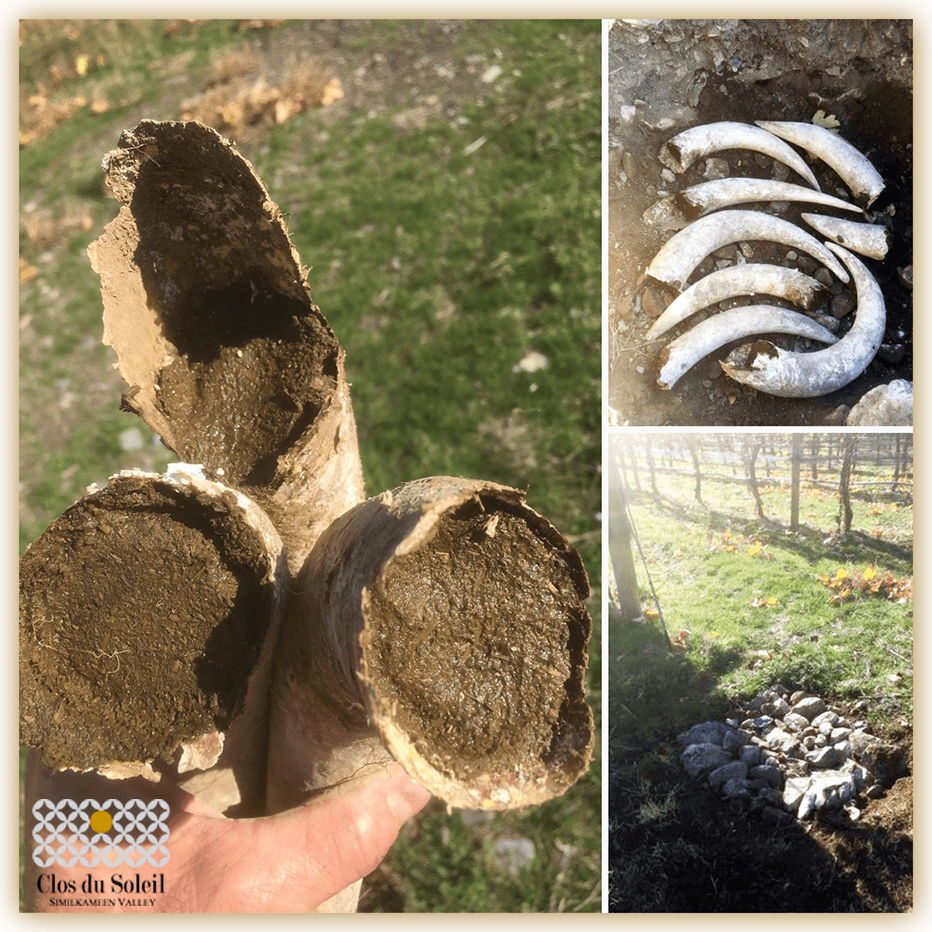
Wine can be a magical experience. The first summer-patio sip of an icy white when the evenings turn long and the weather balmy. The soul-warming balm of a rich red on a freezing winter’s eve. The Friday-night glass of your go-to wine after a gruelling week. There is no denying there is magic there. Why then, are so many people, so many wine lovers, so skeptical of biodynamics in winemaking?
To be sure, there is an air of the supernatural, a sense of mystery, that surrounds the term ‘biodynamic’, especially in relation to wine, which has many rolling their eyes. We have heard it referred to as ‘dippy’, ‘witchcraft’, ‘sorcery’. It is undoubtedly a topic that tends to divide wine lovers – and wine farmers – into two hard groups: devotees and skeptics.
Here at Clos du Soleil, we fall firmly into the former of the devotee/skeptic divide. It has nothing to do with intangible myths and mystery, however, and everything to do with the health of our vines, and the health of the grapes that go into the wine in your glass – which you ultimately find so magical. Here are our ‘why’ and ‘how’ for practicing biodynamics at Clos du Soleil.
What is Biodynamics?
Firstly, let’s start with a definition of biodynamic farming. According to the Biodynamic Farming and Gardening Association, biodynamics is “a spiritual-ethical-ecological approach to agriculture, gardens, food production and nutrition.” With this in mind, biodynamic wine is made with a set of farming practices that views the farm or vineyard as one solid organism – with much of the focus on the ecological, more scientific side of things.
“At Clos du Soleil specifically, biodynamics provides us with a set of tools and conceptual frameworks, with the fundamental goal of having the healthiest vines, and the healthiest soil possible,” explains winemaker Michael Clark. “It is my firm belief that the outcome is more expressive and better balanced wines. And that is at the foundation of everything we do.”
Developed by Rudolf Steiner in the 1920’s, biodynamics provides us with a philosophy of farming generally, plus a large array of practices that can be implemented in the vineyard. For us, biodynamics is about encouraging diverse life throughout the vineyard, managing the farm as an ecosystem, and harmonizing vineyard work with the rhythms of the natural world. We start by practicing organics, which we see as crucial to human health, plant health, and soil health. By adding biodynamics on top of these organic practices, we are giving ourselves an array of tools to boost the life in our farm.
Better Soil Equals Better Wine
The concept of living soil is fundamental to this. “We use natural ‘preparations’ (i.e., sprays) that we produce ourselves, to encourage soil life, and to help develop the vine’s natural balance and immune response,” explains Clark. “Two of the best known biodynamics preps, which we use regularly at Clos du Soleil, are ‘Horn Manure’ (aka Prep 500) and ‘Horn Silica’ (aka Prep 501). Both of these are prepared by filling the hollow horns of organic cows with manure, or crushed silica, respectively, and then burying them in the vineyard for several months, before digging them up and creating vineyard sprays from the contents.” Various other herbal preparations are also used in biodynamics, with composting also playing a central role.
Biodynamics at Clos du Soleil
At Clos du Soleil, our Estate vineyard is certified organic, and we have been using biodynamics close to 10 years now. Furthermore, as we have acquired new vineyards in the last couple of years, we are converting those to organic and biodynamic practices too. Why? Because, as
Steve Roche, Clos du Soleil vineyard and operations manager, expresses, “I believe everything in nature is in a fine balance… We, as farmers and winemakers, need to work with nature and the natural flow of nature as opposed to trying to control what happens. If we disturb the balance, I believe that it will come back and haunt us in the future.”
As for whether it works or not – be it by witchery or by sound ecological farming practices? Well, the proof, as they say, is in the pudding. And by pudding we mean the wine in your glass.
